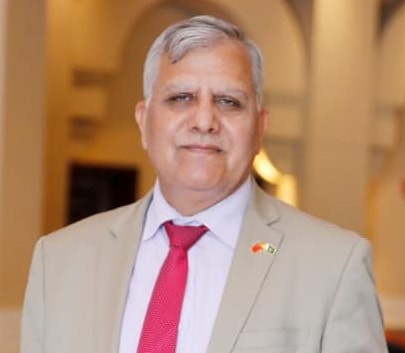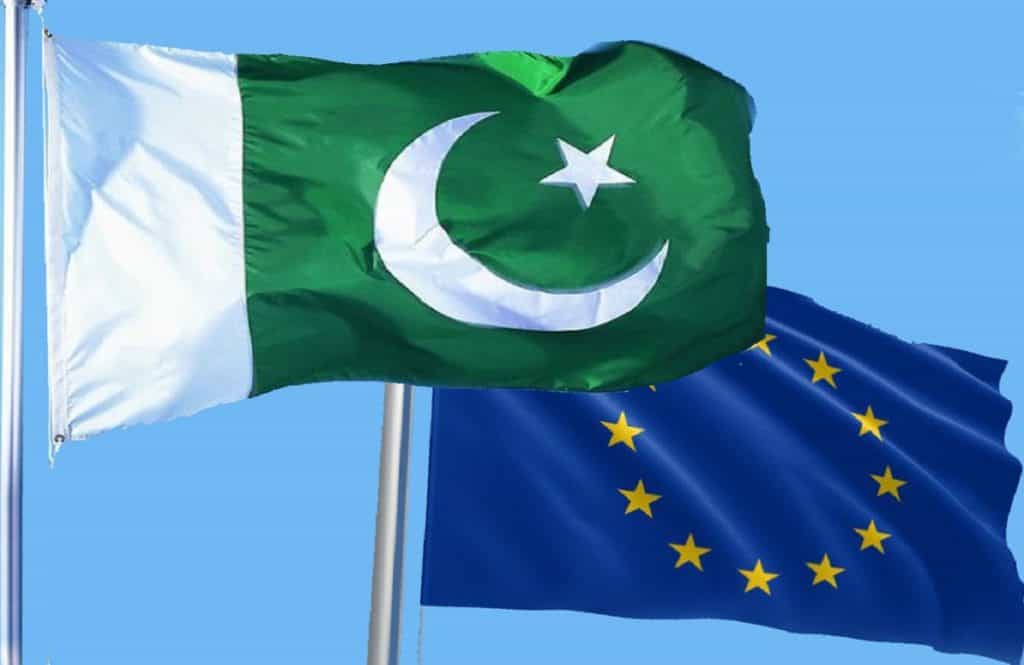By Prof. Engr. Zamir Ahmed Awan
Since independence from British rule in 1947, Pakistan was enjoying good relations with almost all European nations.

Pakistan was in Western Block during the cold war era, and Afghan War against the former USSR intervention of Afghanistan, and close non-NATO ally in War on Terror. Elite in Pakistan is educated in the West and following Western lifestyle and standards. Most of the legislation was inherited from British rule. Especially the educational system, Judiciary, District Management system was more inclined to British rule. Pakistan is one of the most moderate, modern, westernized Muslim countries.
The history of Diplomatic relations between Pakistan and the European Economic Community goes back to 1962. However, the European Commission opened an office in Islamabad in 1985 formally. It was upgraded three years later in 1988 into a European Commission Delegation, including full diplomatic status and a Head of Delegation accredited as Ambassador, with all diplomatic norms and immunity according to International laws and practices, to the Head of State of the Islamic Republic of Pakistan. After signing the Lisbon Treaty, on 01 December 2009, the European Commission Delegation established in Pakistan became the “Delegation of the European Union to Pakistan” with signing the Lisbon Treaty.
It opened many avenues of collaboration and exchanges between Pakistan and the EU. Following Pakistan-summits, the EU-Pakistan Five-year Engagement Plan came into force in 2012. This Plan aimed “to build a strategic relationship by forging a partnership for peace and development rooted in shared values, principles and commitments.”
The EU-Pakistan strategic dialogue was held in Islamabad in June 2012. The European Union High Representative for Foreign Affairs and Security Policy/Vice-President of the European Commission (HR/VP), Catherine Ashton, led the European Union Side whereas the Pakistani Foreign Minister Hina Rabbani Khar represented Pakistan. Two EU-Pakistan Strategic Dialogues were held in March 2014 and in October 2016.
The Pakistan-EU Strategic Engagement Plan reached in 2019 has further augmented the relationship. It provided a solid foundation and framework for cooperation in multiple domains, including (i) political and defense; (ii) trade and investment; (iii) promotion of democracy, the rule of law, good governance, and human rights; (iv) migration and mobility; (v) sustainable development; (vi) education and culture; and (vii) science and technology.
Pakistan and EU relations encompass almost all important aspects, including Trade, Investment, Political, Diplomatic, Strategic, Education, Science & Technology, Industry, Agriculture, etc. In fact, Pakistan and the EU are strategic partners. In some aspects, the EU is helping Pakistan with Trade, Investment, Technology, etc. Pakistan is also looking after the EU’s strategic interests in the region like Afghan issue, terrorism, drug control, etc. The EU is a traditional friend and a significant economic partner of Pakistan. The cooperation is based on shared values of democracy, pluralism, mutual understanding, and respect.
As a matter of fact, Pakistan is the sixth-largest country with a population of 220 million, especially with 70% of its population consisting of youth under 40 years. A vast and robust workforce. Pakistani youth is well qualified, dynamic, and hardworking, contributing a lot to the EU’s economy. Pakistan is blessed with enormous natural resources, coal, minerals, rare elements, etc. Basically, Pakistan is an agricultural country and possesses huge potential, and can contribute to food security internationally. Pakistan can contribute to poverty eradication globally.
Trade is an essential aspect of Pakistan-EU’s multi-faceted cooperation. While the GSP Plus has supported Pakistani exports and has introduced reforms to attract foreign direct investment to utilize this facility maximally. Pakistan offers an open and deregulated market with 100 percent equity ownership and repatriation of capital and dividends. IT sector is full of talent. Over the last five years, IT exports have increased by 151 percent. The EU can benefit from Pakistan’s human resources in the IT sector to realize its mega Digitization goals.
Pakistan is providing quality consumer products at a very competitive cost to the EU. Pakistan is meeting the middle-class and lower middle-class’s needs satisfactorily. Pakistan’s geostrategic location is vital and playing a bridge role between East and West, connecting Africa, Europe, Middle-East, Asia, Eurasia, etc.
Pakistan is fully committed and closely engaged with the European Commission and the European External Action Service (EEAS) to effectively implement the GSP Plus-related twenty-seven international conventions.In this regard, Pakistan has established Treaty Implementation Cells at the federal and provincial levels, which have a vital role in overseeing and facilitating the government machinery in implementing these conventions. Ministry of Human Rights establishes a human rights management information system to strengthen data collection for treaty bodies and GSP Plus reporting.
Pakistan has signed a Readmission Agreement with the EU. Illegal migration is mutual concern and the agreement is implemented satisfactorily. The SEP vividly mentions that two sides would engage in a Migration and Mobility Dialogue to kick-start the process of legal migration, which is important to address the issue of illegal migration. Pakistan has an earnest desire to strengthen inter-parliamentary linkages and hoped that these ties would further deepen the Pakistan-EU friendship. Our cooperation in overcoming COVID-19 was applauded.
However, with reference to the adoption of a resolution by the European Parliament on blasphemy laws in Pakistan, we need to emphasize the importance of understanding the unique feelings and reverence Muslims have for the personality of the Holy Prophet (PBUH). There are around two billion Muslims, and 57 Muslim countries, also Muslims live in every part of the world.
Freedom of expression could not be used to hurt the religious sentiments of others, and intentional provocation and incitement to hatred and violence must be universally forbidden. It is a recognized fact that xenophobia and Islamophobia were on the rise in the West, and it is desired that the EU should work for peaceful coexistence and interfaith and cultural harmony.
Author: Prof. Engr. Zamir Ahmed Awan – Sinologist (ex-Diplomat), Editor, Analyst, Non-Resident Fellow of CCG (Center for China and Globalization), National University of Sciences and Technology (NUST), Islamabad, Pakistan.
(This is an opinion article. The views expressed belong only to the author and the publication of the article does not necessarily imply the endorsement of its content by World Geostrategic Insights).







